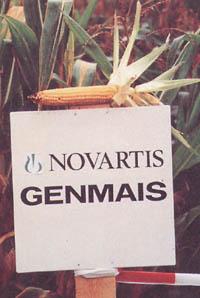Beware of GM foods first
1999/10/01 Groome, Helen Iturria: Elhuyar aldizkaria
Faced with new technologies, the farmer needs a proven and useful technical information for his environment, a new insurance system that protects him against new risks and know well the opinion of his main customer, the consumer.
In the application of agricultural genetic engineering to date only one of these three elements has become clear: the actions of all kinds that have been carried out indicate that consumers have great uncertainties about genetically modified foods and demand a distinctive label to avoid the risk of accidental purchase. This should make the agrarian population think, because our commitment is to quality and depends on the customer here.

What is really missing is proven and valid technical information for farmers about the benefits and risks of agricultural genetic engineering. Research results have begun to come little by little, but we need to know who is doing the research and who pays to value the results. In the meantime, transgenic maize capable of dealing with taladrine is sold to farmers who do not have it or data from research results that do not suit multinationals, which are a sample of the ethical problems that are occurring at the moment, is being manipulated. These attitudes have made the agrarian population distrust of these new technologies. There are currently no valid data to help decide whether or not to use GMOs in the Basque Country.
Some data to consider when determining who or who the risk owners of these technologies are. On the one hand, important insurance groups have underlined the need to design new systems to secure genetically modified plants or foods; they certainly want more expensive policies, but they are not yet. On the other hand, the new European legislation on damage to agricultural products makes it clear that the responsibility is for the farmer or farmer, as long as consumers are able to clarify the cause (in reality it is very difficult). Thus, large agri-food companies, the promoters of agricultural genetic engineering, motivated by benefits like any other company, when they talk about it wash their hands, oppose the labeling of products and do not allow farmers to decide on the use or not of GMOs and, worse, socialize any impact or risk of their technology. They have not yet explained how the world's poor are going to buy their food to eliminate hunger, because according to them it seems to be the first goal. In this situation, it is clear why the agrarian union, which aims to defend farmers (let's not forget that they are consumers at once), demands to be careful.
Helen Groome EHNE

Gai honi buruzko eduki gehiago
Elhuyarrek garatutako teknologia





